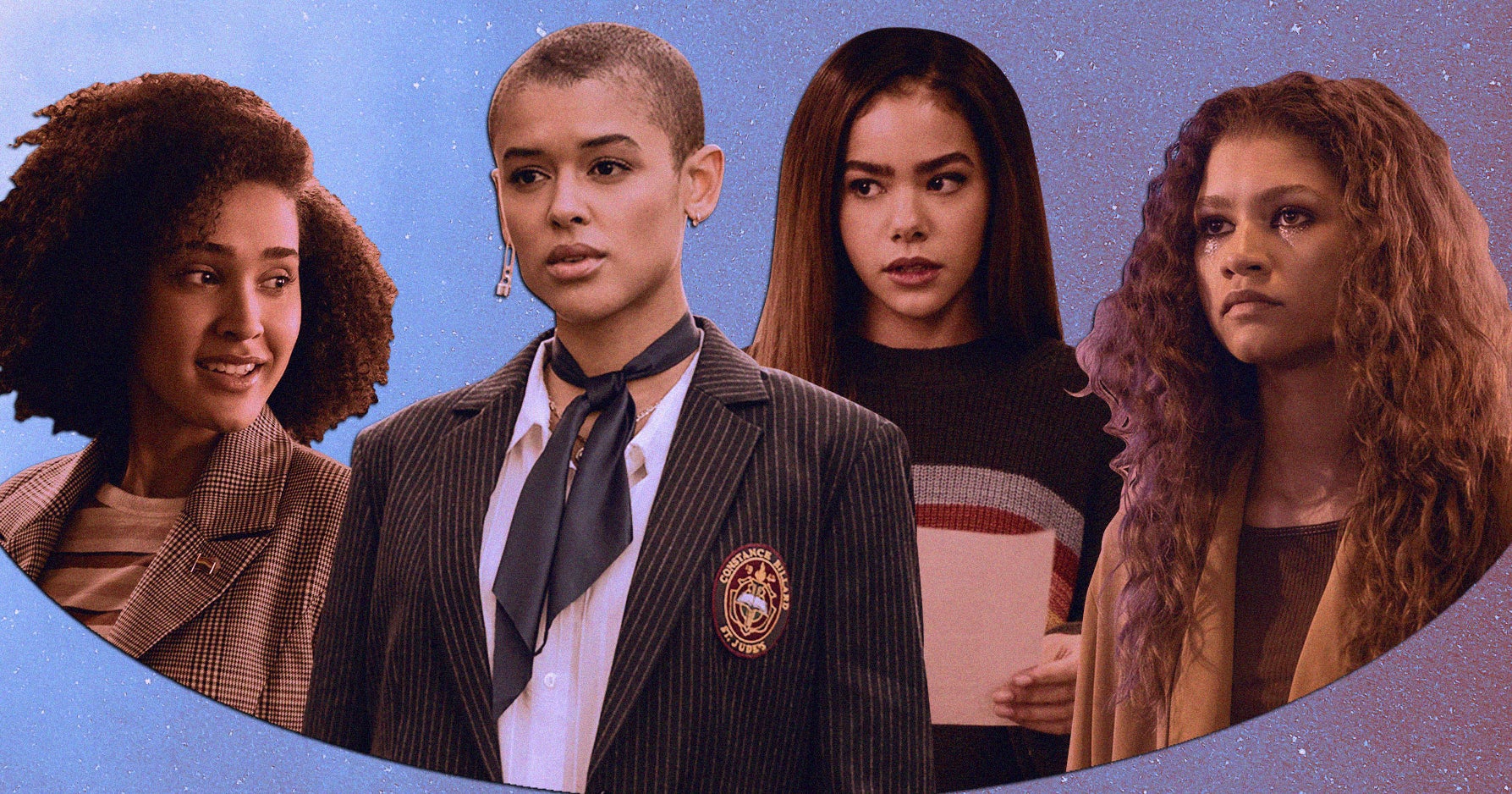All three of the Black actresses starring in
Gossip Girl are light-skinned — the kind of Black this industry consistently deems worthy of lead roles. When it comes to this exhausting issue, Black women and teen girls get the worst of it. Oftentimes when you do see dark-skinned characters in desirable roles (or at all), it is Black men and boys. This has bolstered the notion that
darker skin is equated to masculinity and lighter skin to femininity. Darker-skinned Black girls are rarely portrayed as the popular, pretty, love interests (see again:
Gossip Girl) but to take it one step further: the erasure of dark Black femininity is an insidious way the lie that lightness links to soft, delicateness and that darkness is akin to all the things society pegs to masculinity — strength, aggression, cockiness — continues to spread. Sure, you could call casting
any Black stars over none a win for the “representation matters” crowd, (biracial Black actress Jessica Szohr was the exception on the original
Gossip Girl, but she was a supporting character at best and her race was barely acknowledged) but when the same shade of Black woman and girls is perpetually prioritized over others, who is really winning?
Adblock test (Why?)
"gossip" - Google News
July 15, 2021 at 11:01PM
https://ift.tt/3ijq6vU
It Isn’t Just Gossip Girl — TV Has A Major Colorism Problem - Refinery29
"gossip" - Google News
https://ift.tt/2QfcAx1
Shoes Man Tutorial
Pos News Update
Meme Update
Korean Entertainment News
Japan News Update


No comments:
Post a Comment